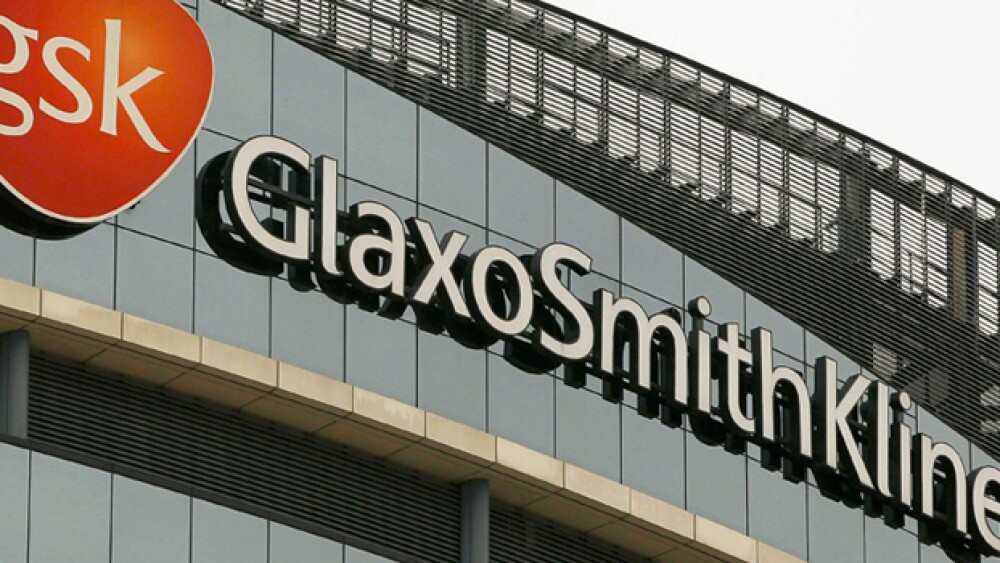Nearly four months after acquiring 100 percent control of its consumer health unit, GlaxoSmithKline Chairman Philip Hampton may be pushing for the business to become a standalone entity apart from its pharma and vaccines division, according to The Financial Times.
Nearly four months after acquiring 100 percent control of its consumer health unit, GlaxoSmithKline Chairman Philip Hampton may be pushing for the business to become a standalone entity apart from its pharma and vaccines division, according to The Financial Times. But, before any such venture can be undertaken, GSK’s pharma business has to be able to stand on its own, analysts say.
That’s something that Chief Executive Officer Emma Walmsley has been focused on since she took over the reins of the British pharma giant. And, that is something that Hal Barron, GSK’s chief scientific officer and head of R&D will address on Wednesday. Barron will take center stage to discuss the direction of the company’s R&D programs, particularly in light of new hires such as Genentech’s Kevin Sin, who was hired as the head of worldwide business development for pharmaceuticals research & development. Will GSK take a renewed stab at oncology treatments – something they veered away from several years ago following an asset swap with Novartis?
Since taking over as CEO last year Walmsley has reshaped the leadership of GSK with a hard focus on the company’s pharmaceutical R&D business. In addition to hiring Baron and Sin, one of Walmsley’s first hires was AstraZeneca’s Luke Miels, who was hired as the global head of GSK’s pharmaceuticals.
The leadership changes were made to support the company with its renewed focus on pharma R&D. Last year Walmsley announced a major shakeup to GSK’s R&D division, which at the time accounted for 16 percent of the company’s revenue. The shakeup was in response to declining revenue from generic challenges to its asthma drug, Advair and a lack of blockbuster drugs coming out of its programming. The company closed more than 30 preclinical and clinical programs and said it will allocate 80 percent of its research-and-development budget to respiratory and HIV/infectious diseases.
The effort to reshape the company’s R&D focus will significant as the company looks to its pharma and vaccines business to be the primary revenue driver for the company. That’s something that must happen before Hampton’s desire to see the consumer health business stand alone can happen, the Times said.
During the first quarter of the year, the Times said the pharma and vaccines divisions saw a 2 percent and 13 percent increase in sales respectively. Building the strength of the company’s pharmaceutical division has been Walmsley’s primary mission since taking over the company from Sir Andrew Witty. Not only has Walmsley focused internally and changes that can benefit the company’s pharma business, she has also taken steps to see how GSK stacks up against other industry powerhouses. The Financial Times said Walmsley commissioned a report to assess how GSK stands in comparison to its competitors. The report, the Times said, showed how the company performed on the number of drugs that were approved by regulatory agencies. But, the report also showed that the company did not perform well on “the value of the medicines created for the company,” the Times added. Citing analysts from Credit Suisse, GSK could see about “£1.2bn ($1.58 billion) of sales by 2022” from its pipeline. That would be a “poor return” considering the company spends about £3.4 billion ($4.47 billion) on its pharma and vaccines R&D, the analyst said, according to the Times.
When Barron speaks this week, Barron is expected to address R&D spending plans, including additional spending to support clinical trials for a myeloma treatment.
While Barron could comment on a number of programs and potential R&D spending on Wednesday, Credit Suisse said investors want a “clear statement of how Glaxo is going to improve its R&D productivity. That being said, it appears that GSK’s pharma and vaccines businesses have a way to go before Chairman Hartman will see his wish of spinning on the consumer health business come to fruition.





